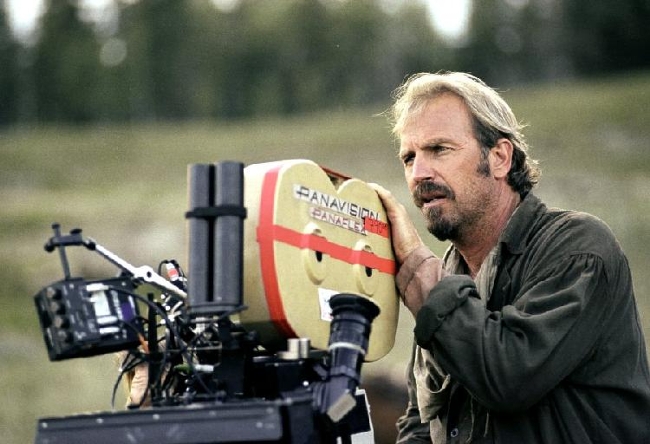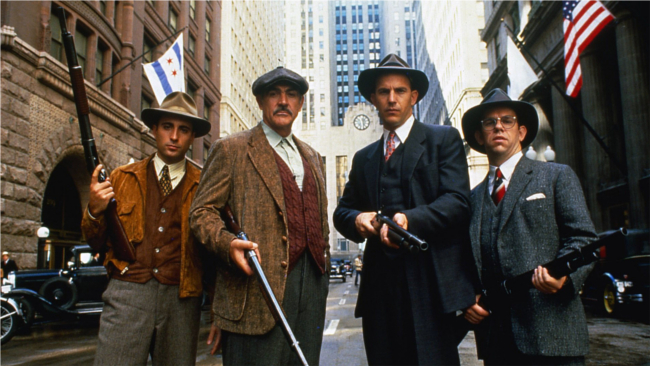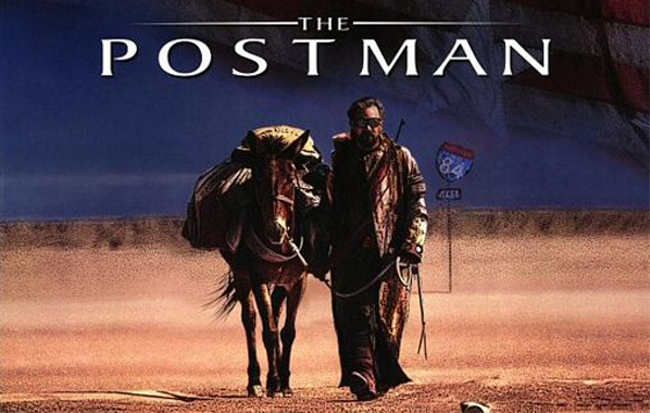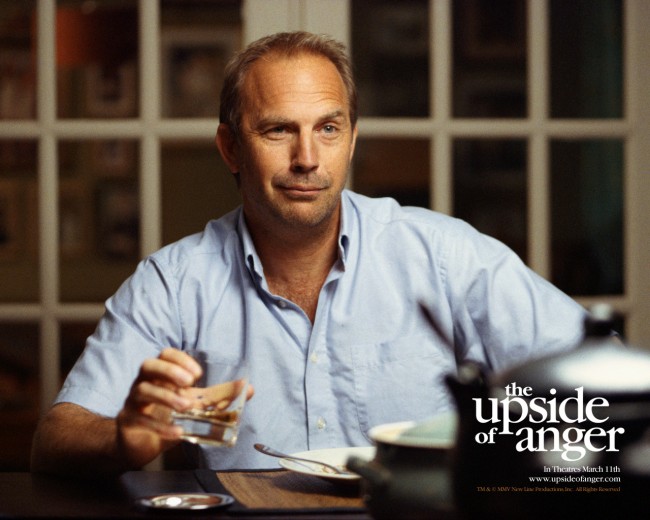
He seemed the epitome of the All-American Good Guy: Kevin Costner was the original King of the World in 1989, when he put his career on the line to make an (ugh) Western. A three-hour (ugh) Western at that, and not just to star in: he was directing for the first time. He gambled, won and became our new Gary Cooper. But what happened? When he’s not flitting in and out of marriages, he keeps showing up in the most random B-pictures (Mr. Brooks? The Guardian? Seriously? Were these supposed to be comebacks?), along with doing his part to clean the BP Gulf spill with ocean-cleaning technology he’s been pouring money into for a decade.
Where’s the Kevin Costner we grew up with? Let’s take a look at his career.
Their Rise

The Untouchables – Costner’s big break was as the friend in The Big Chill whose suicide brings his college pals back together. Unfortunately, his scenes were cut from the finished film. After that, the lanky, handsome and slightly goofy young actor appeared in the forgettable American Flyers and Fandango. The Big Chill director Lawrence Kasdan never forgot him, though, and gave him a breakthrough, scene-stealing role as a wild young cowpoke in Silverado.
Then, in 1987, Costner played the straight-laced G-man Eliot Ness in Brian DePalma‘s The Untouchables. With Oscar-winning Sean Connery chewing as much scenery as Robert DeNiro‘s larger-than-life Al Capone, Costner’s youthful confidence was the calm standout. With the help of David Mamet‘s ripe dialogue, his star was on the rise.
Their Peak

Dances With Wolves – Costner was riding a string of hits in the late 80’s: No Way Out, Bull Durham, Field of Dreams – with each role, he furthered his heroic Everyman image, augmenting this with tense stoicism, winking comedy or a winning sense of nostalgia, respectively. Somewhere around 1986, Costner came across a spec screenplay about a Civil War vet who comes to admire the Native American culture and eventually live as one of them. He recommended that writer Michael Blake turn the story into a novel, which was then turned back into a script. The three-hour Western (with %25 of its dialogue in Lakota) went over budget, was ridiculed in the press as “Kevin’s Gate,” (referencing the 1980 Michael Cimino disaster Heaven’s Gate), and went on to win the first Best Picture Oscar for a Western since Cimarron in 1931. To this day, Dances With Wolves stands as the highest-grossing Western, with a domestic theatrical take of $184 million. Culturally, the story still resonates – wasn’t Avatar just the same plot with aliens? Kevin Costner was now the biggest star in the world.
Their Point of Decline

The Postman – Ah, the irony of Hollywood. Like with a number of other stars, Costner’s greatest success seemed to signal the beginning of the end. His output following Dances With Wolves was strikingly uneven: the amusingly cornball Robin Hood: Prince of Thieves, his barn-storming central role in JFK, his underrated work in Lawrence Kasdan’s bloated Wyatt Earp…and then came the bizarro Waterworld. The tales of that film’s myriad lunacy are now legend – the fact that no one bothered to test the weather patterns, making shooting in the middle of the Pacific Ocean a nightmare; Joss Whedon flying out for rewrites, calling the time “seven weeks of hell;” original director Kevin Reynolds walking off the set, leaving Costner to finish it himself. Despite all that, the film ain’t half bad, and it made it’s money back.
Costner’s next official film as a director, though… well, it was The Postman, the story of a post-apocalyptic drifter who schemes his way into an enclosed community by delivering long-lost mail and somehow becomes the savior of civilization. It was a proper disaster, grossing around $17 million on an $80 million dollar budget and single-handedly bumping Costner from the top of the A-list… seemingly forever.
Their Resurrection

The Upside of Anger – His recent casting as Jonathan Kent in Zack Snyder‘s Man of Steel could point toward a new and interesting direction for Costner, but his real comeback was not the sappy For Love of the Game, the boring Dragonfly or even his second attempt as director-star in a Western Open Range. His terrifically funny supporting role in writer-director Mike Binder‘s The Upside of Anger was the Costner we all remembered and loved. As the pot-smoking, beer-swilling, former Detroit Tigers pitcher Denny Davies, neighbor of Joan Allen‘s jilted suburban wife and mother of four, Costner is at turns funny, lonely, bitter and protective of the five females he’s suddenly fallen in with. He took another good supporting role in The Company Men, teaching ousted corporate shark Ben Affleck the value of an honest day’s work.
I have my doubts about the Superman reboot as I am not convinced that producer Christopher Nolan‘s “gritty” approach to Batman will yield the same critical and commercial results. But as Superman’s adoptive father, there is really no one better suited to teach the last son of Krypton the American values he takes to heart as “Earth’s mightiest hero” than Kevin Costner, still and always an American icon.
What do you think of this overview of Kevin Costner’s career? Do you have personal different high and low points for the actor?

